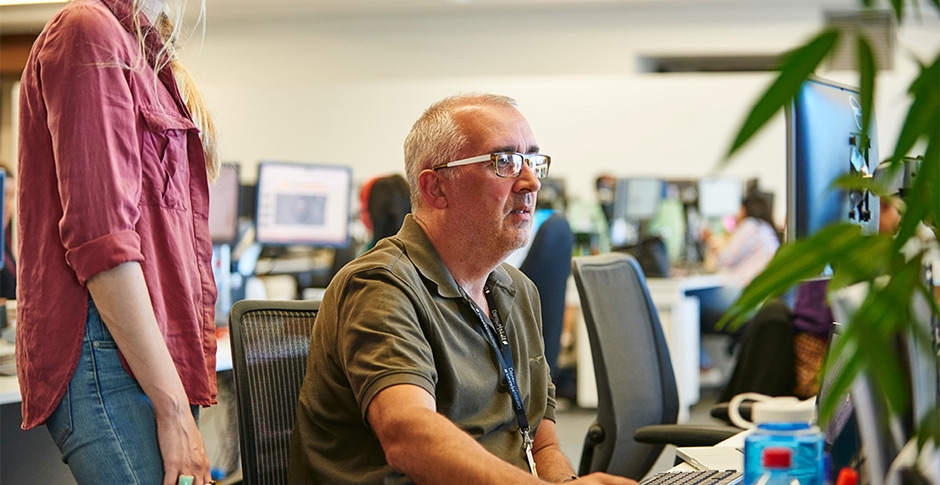How to change careers at 30, 40, 50+
It’s one thing to change careers when you’re in your twenties – you’ve probably only invested less than seven to ten years in your occupation. But what if you’re in your thirties, forties or fifties? The feeling of risk seems to increase the older you get, so you have to really want to make the change.
The good thing is if you're changing your career later in life, you're probably really passionate about it, but there are still some important things to consider. Read on for how to change careers at 30, 40, 50+.
-
Have a financial buffer. People are expected to be financially secure when they reach the ages of 40 or 50, so changing jobs at this time this can feel daunting, because it can mean starting at the bottom and taking a pay cut.
Andrew Brushfield, director of Robert Half Victoria and Western Australia, advises, “Put some money away and create a financial buffer to support your decision, so that when the time comes to change careers you won’t feel the pinch in your pocket.” It will also ease any concerns from employers that the new salary won’t be sufficient for you.
And remember, this is only one potential scenario in a career change, says Brushfield. “Sometimes a switch in roles can mean more cash in your wallet.”
-
Combat ageism. You’re only as old as you feel! Instead of speaking negatively about your age, focus on the positives that you would bring to an organisation, and be proactive if you suspect ageism in a recruitment process.
“Call the employer and explain, concisely, what you can offer. Focus on experience from your previous career, life experience, transferable skills, financial and emotional stability, and diversity,” says Erin Devlin, managing director of people2people Victoria.
It’s also a good idea to explain your motivation. “If the employer can understand that you’re changing careers on purpose, then they are more likely to consider your background.” Back yourself, and they will back you.
-
Tailor your experience. An obvious advantage candidates in their 30s to 40s have is experience, though it may not always be the ‘right’ kind. Devlin recommends assessing yourself against the ideal type of candidate that an employer might look to hire for the role you’re looking at, then making an action plan for how you might address any gaps in your experience or skill set.
“For example, if you are applying for a marketing coordinator position, after studying and changing careers from admin, you may need to consider running some additional digital projects yourself at home or through volunteering, such as a blog or social media campaign, to develop your digital skills.” You could also “ask to intern in a company you wish to work for, says Brushfield, “so you can learn the ropes, build experience and confidence.” And of course make sure to let the employer know about your efforts!
-
Have confidence in yourself. It’s easy to be scared of failing at something new. That’s why many people stay in the same job even if it doesn’t make them happy. But if you go for a role you love, you will be bringing with you positivity and proactiveness: two highly valuable qualities employers look for in candidates.
You can work to improve your confidence by reaching out to those in your desired industry or role, says Brushfield. “Talk to them and find out what it takes to do their job. Establish connections, research the people and products or even become involved in your desired career on a pro bono basis.”
And don’t worry about burning bridges. “Just because you are beginning a new career does not mean you are closing doors on your current work partnerships. Your connections can be your biggest supporters in driving your ambition to find a role you that suits you. Look for ways to make these people or connections work for you, rather than against you.”
Age isn’t a barrier to changing careers: it can be a blessing! As long as you’re passionate about what you’re pursuing and open to learning and growing, you can succeed.
As long as you're passionate about what you're pursuing and open to learning and growing, you can succeed.
